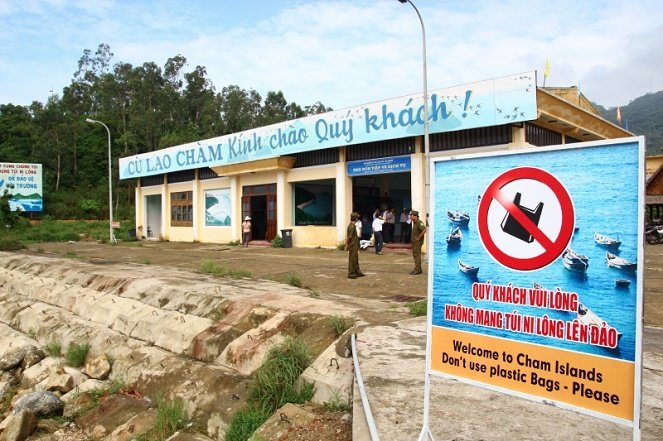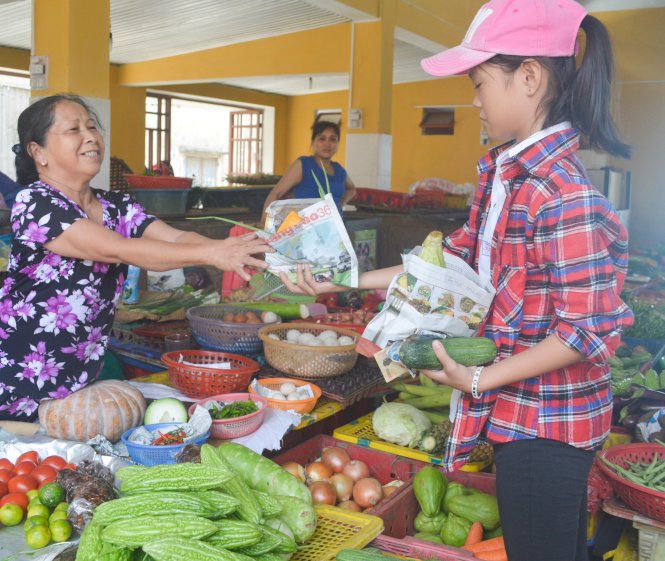As experts converged on Da Nang on Wednesday for the sixth meeting of the Global Environment Facility (GEF) Assembly, small but concrete actions to protect the environment have already been taken for years by people living 30 kilometers away in the quiet city of Hoi An.
Those actions are only perfecting what Vietnamese families have been doing for generations: sorting household wastes into recyclables and non-recyclables and selling the latter to door-to-door garbage collectors for some small cash.
When GEF poured nearly VND900 million (US$39,000) into Hoi An in early 2011 as part of the fund’s Small Grants Program (SGP) aimed at “building a socialized model of waste management” in the central Vietnamese city, it did not imagine the two-and-a-half-year program would go on to have such lasting impacts even until today.
From the initial goal of improving the city’s capability in managing its waste problems, the GEF-funded program has achieved something even greater: supporting the livelihood of the city’s poor and reshaping the lifestyle of locals.
Ngo Thi Tuyet Nhung, deputy chairwoman of the Women’s Association of Hoi An, says she still remembers each and every ordinary citizen who played a role in the program’s success.
It is Le Thi Van, owner of a garbage collecting facility in Hoi An, who says her house is no longer haunted by foul smell ever since local residents learnt how to sort their household wastes correctly thanks to the program’s impact.
A part of the program’s money also goes into equipping garbage collectors with new, modern vehicles with which they can carry on their daily job with greater ease.
“Everyone has something to gain in the end. Homemakers are better informed about environmental issues; garbage collectors earn enough to put food on the table; and my house stinks less,” Van said.
 |
| A sign on one of the Cham Islands asking visitors not to bring plastic bags onto the islands. Photo: Tuoi Tre |
On the Cham Islands off Hoi An, leading a plastic bag-free lifestyle has become an instinct for residents from all walks of life.
For the past decade, the islanders have been able to do away with plastic bags thanks to a campaign initiated in 2009 by a former Party leader of Hoi An.
At the bustling market of Tan Hiep on one of the islands, no plastic bag could be spotted in the hands of any shopper or vendor.
Instead, paper bags, tree leaves and newspapers are used as eco-friendly alternatives.
“It was inconvenient at first to be honest, but then it just grew on me and before I knew it I am already advocating others to switch away from plastic bags,” said Nguyen Thi Thu Thanh, a souvenir seller.
|
The Global Environment Facility was established on the eve of the 1992 Rio Earth Summit with the aim of helping tackle the planet’s most pressing environmental problems. The GEF Assembly is composed of all 183 member countries that meet every three to four years at the ministerial level. This year, the sixth meeting of the Assembly is held on Wednesday at the Ariyana in Da Nang. |
Like us on Facebook or follow us on Twitter to get the latest news about Vietnam!




















































